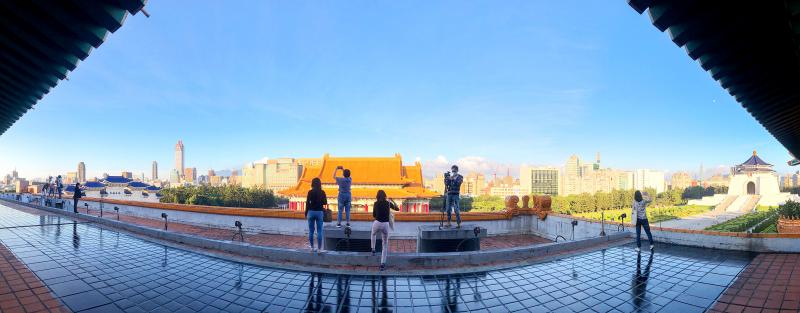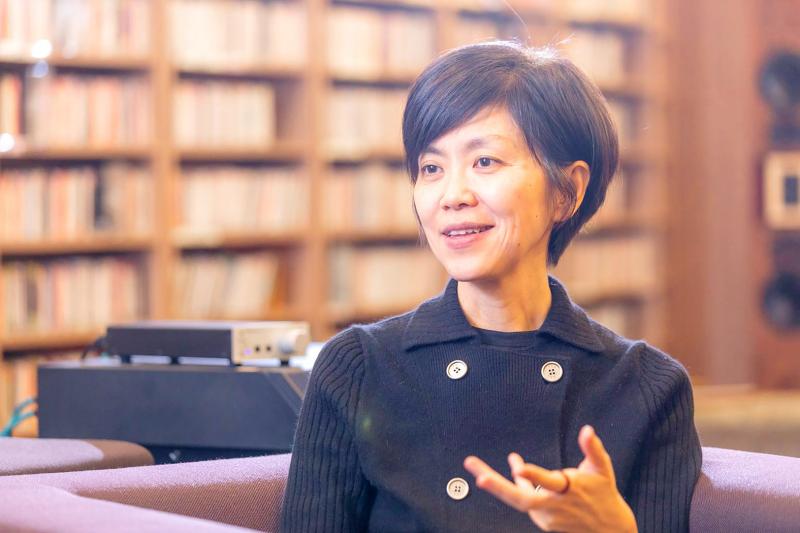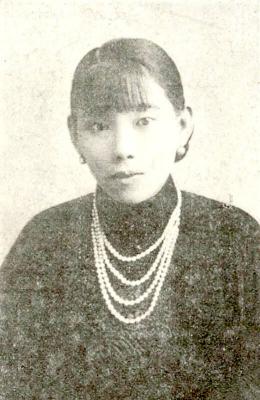The National Theater and Concert Hall (NTCH) in Taipei “needs to move with the times to maintain its significance in society,” its Artistic Director Liu Yi-ruu (劉怡汝) said in a recent interview.
Liu added it is not enough for appreciation of the performing arts to be limited always to the same group of people.
“The industry needs to venture outside its realm and find a place among the general public,” said Liu, who returned to the NTCH in April 2018 as its artistic director after a four-year break.

Photo: CNA
She said one initiative to attract wider patronage was the renovation of the Performing Arts Library, which is scheduled to reopen on Jan. 20. It will offer better access for people with disabilities and accommodation for the average person.
“Regular folks may be intimidated by the idea of going to a live performance, but they can easily go to the library to watch videos or listen to the audio of a performance,” Liu said.
The new library, which has seen a decline in visitors that averaged 1,000 per year over the past three years, has meeting spaces and is designed to serve as a window on the NTCH, Liu said.

Photo: CNA
In an effort to attract more people, the NTCH has introduced audio guides of its performances, subtitles during performances and child-care services for theater and concert-goers, she said.
There is also a more relaxed approach during certain performances, which allows people in the audience to enter and leave at anytime, Liu said.
Nonetheless, Liu said, performances remain central to the NTCH, which is now also producing shows instead of just hosting them.
At the Taiwan International Festival of Arts, which will be held March 2 to May 2, the NTCH will produce A Thousand Stages, Yet I Have Never Quite Lived, a solo performance by Peking opera star Wei Hai-min (魏海敏) that looks back on the past six decades of Taiwan’s history through the eyes of six iconic characters.
Liu said she is also working to bring the NTCH into the modern age of digitization, by updating its Internet infrastructure and ticketing system, as well as using 5G technology to stream performances to audiences outside the venue.
In response to the ongoing COVID-19 pandemic, the NTCH has also been experimenting with technology to see if it could host virtual presentations, she said.
In a series of talks held on Dec. 26, the NTCH reviewed three online productions it had commissioned and presented in the second half of last year, as well as an online show and a live streamed one, and said it would continue to explore such presentations.
The challenge facing the performing arts, however, remains attracting and retaining a sustainable audience, said Liu, who has worked for 30 years as an administrator in the field.
She said people should pay attention to how their tax dollars are spent by the state-run NTCH, as it seeks to help bring about the sector’s evolution.

Many people noticed the flood of pro-China propaganda across a number of venues in recent weeks that looks like a coordinated assault on US Taiwan policy. It does look like an effort intended to influence the US before the meeting between US President Donald Trump and Chinese dictator Xi Jinping (習近平) over the weekend. Jennifer Kavanagh’s piece in the New York Times in September appears to be the opening strike of the current campaign. She followed up last week in the Lowy Interpreter, blaming the US for causing the PRC to escalate in the Philippines and Taiwan, saying that as

US President Donald Trump may have hoped for an impromptu talk with his old friend Kim Jong-un during a recent trip to Asia, but analysts say the increasingly emboldened North Korean despot had few good reasons to join the photo-op. Trump sent repeated overtures to Kim during his barnstorming tour of Asia, saying he was “100 percent” open to a meeting and even bucking decades of US policy by conceding that North Korea was “sort of a nuclear power.” But Pyongyang kept mum on the invitation, instead firing off missiles and sending its foreign minister to Russia and Belarus, with whom it

The Chinese Communist Party (CCP) has a dystopian, radical and dangerous conception of itself. Few are aware of this very fundamental difference between how they view power and how the rest of the world does. Even those of us who have lived in China sometimes fall back into the trap of viewing it through the lens of the power relationships common throughout the rest of the world, instead of understanding the CCP as it conceives of itself. Broadly speaking, the concepts of the people, race, culture, civilization, nation, government and religion are separate, though often overlapping and intertwined. A government

Nov. 3 to Nov. 9 In 1925, 18-year-old Huang Chin-chuan (黃金川) penned the following words: “When will the day of women’s equal rights arrive, so that my talents won’t drift away in the eastern stream?” These were the closing lines to her poem “Female Student” (女學生), which expressed her unwillingness to be confined to traditional female roles and her desire to study and explore the world. Born to a wealthy family on Nov. 5, 1907, Huang was able to study in Japan — a rare privilege for women in her time — and even made a name for herself in the